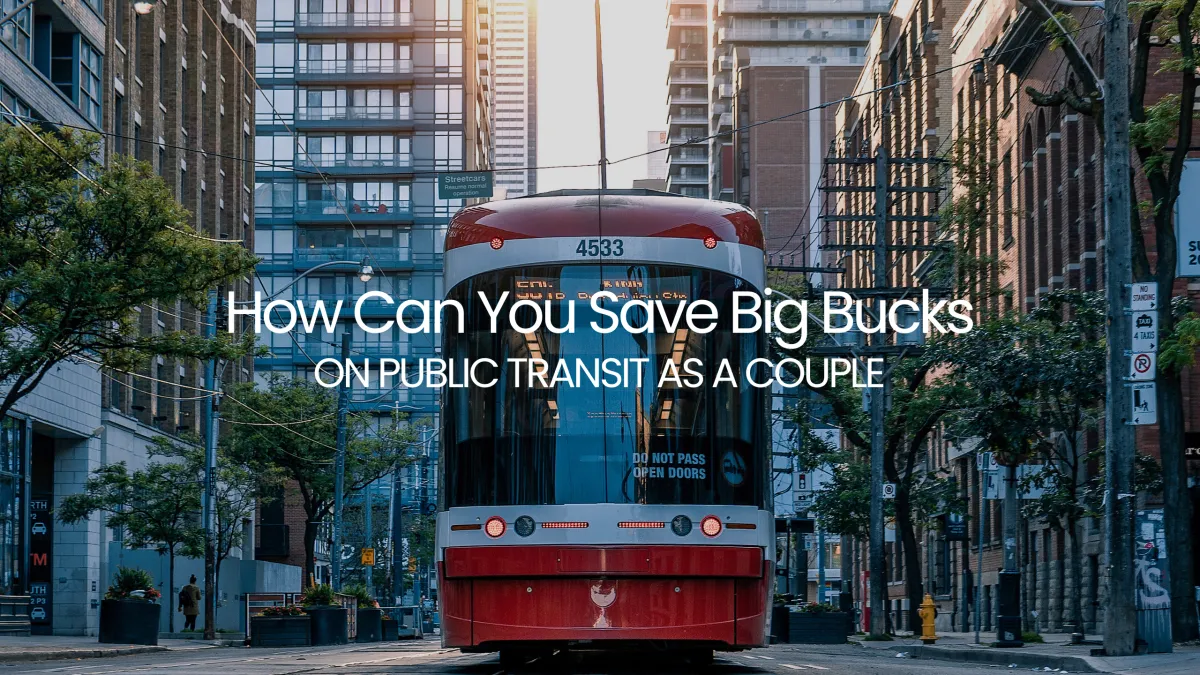
Smart Transit Tips for Couples Moving from Toronto Condos to the Suburbs
Living in Toronto's bustling city center is thrilling, with its busy streets and towering condos. But when the thought of moving to a quieter place like the suburbs comes up, many couples worry about transportation costs. Most suburban areas lack the frequent subway stops and short walks common in Toronto, making planning crucial. Let's explore efficient and budget-friendly ways to use public transit as a couple moving from a condo to a suburban house.
Understanding Toronto's Public Transit Options
The first step is understanding the transit services in Toronto and the suburbs. The Toronto Transit Commission (TTC) covers the city with buses, streetcars, and subways. But as you move into the suburbs, agencies like GO Transit and local bus services like York Region Transit become useful.
TTC Monthly Passes: Consider a monthly pass. If both partners are working and use public transit every day, buying monthly passes can save money compared to single fares.
GO Transit: If you live further away, GO Transit is a reliable option for commuting into the city. Analyze costs between monthly GO passes and individual tickets.
Smart Commute Programs: Look into local Smart Commute programs. Some companies offer discounts for public transit or encourage carpooling with added benefits.
Leveraging Discounts and Passes
Discounts and special passes can help couples save money. Being informed about these options is crucial.
Presto Card Savings: A Presto card is a smart choice, often offering reduced fares on different transit systems. Loading a Presto card can make travel seamless and cheaper.
Partner Fare Sharing: When both partners have Presto cards, traveling together during off-peak hours can reduce the cost. Some services offer discounts for traveling as a group or at specific times.
Weekend Passes: Many transit services offer cheaper passes for weekends, ideal for shopping trips or visiting friends.
Planning and Optimizing Travel Routes
Organizing how and when you travel can lead to more savings.
Use Transit Apps: Transit planning apps can help pick the best routes and times to travel, avoiding peak hours and extra fees.
Map Out New Routes: Before the move, look at maps to find new routes from your suburb to the places you visit often in the city. This helps in avoiding unnecessary travel and costs.
Align Schedules: Arrange work and errands together to make fewer trips. Consider activities that are nearby or on the way to each other.
Embracing Flexibility and Alternative Options
Being open to more options can provide better savings in the long term.
Bike and Ride: If you’re close to a transit stop, biking there and back can cut costs. Some transit options provide discounts for combining biking with public transit.
Carpooling Alternatives: Look into carpooling options with neighbors or colleagues. Many online platforms connect people heading in the same direction, sharing costs and reducing stress.
Flexible Work Schedules: If possible, arrange work hours to miss the rush. Employers often welcome remote work or flexible schedules that can lower commuting expenses.
Monitoring and Adjusting Your Budget
Things may change, so it's good to keep a close eye on your transportation budget.
Log Your Travel Expenses: Record all transportation expenses for a month or so. This will show the real cost and help make decisions.
Review and Adjust: As you track spending, check if using a different transit service or changing travel habits could save money.
Stay Informed About Offers: Public transit systems often update offers and programs. Stay informed to benefit from new discounts.
Making the Most of the Move
Moving from a condo to the suburbs is a big change, but it's exciting too. This step-by-step guide aims to help couples make this change smoothly and cost-effectively regarding public transit.
Research New Subsidies: Governments often provide moving benefits or transit subsidies. Stay alert to such opportunities to control expenses.
Community Engagement: Join local community groups to learn about shared travel resources and deals. Neighbors often have great insights into local transit perks you might miss.
Making a significant lifestyle change like moving from Toronto's core to its suburbs requires careful planning and smart choices. Through understanding transit options, using discounts, flexible planning, and proper budgeting, couples can find ways to enjoy their new suburban life without overspending on commuting. Remember, every small saving adds up, creating more funds for other exciting opportunities your new home might bring.
